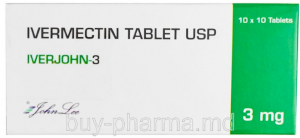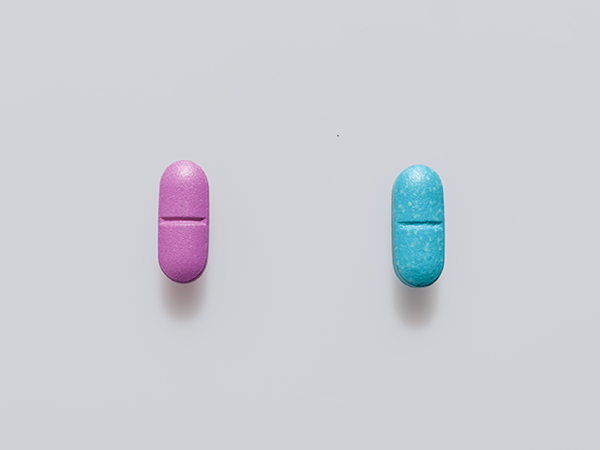What is Ivermectin?

The bioactive ingredient in Ivermectin kills the larvae of parasites. This bioactive agent has a short plasma half-life of sixteen hours and minimal clearance through the kidneys. Therefore, it does not need a dosage adjustment in patients with renal failure. It is administered orally as a single tablet with a glass of water, or it can be injected via a percutaneous endoscopic gastrostomy tube. It is absorbed rapidly from the gastrointestinal tract and is metabolized in the liver. This is the reason everybody covid patients’ family members inquire for Ivermectin for sale.

Ivermectin is a bioactive agent that kills parasite larvae
Ivermectin is a widely used drug in many countries to treat a range of parasitic infections. It is used to prevent heartworm disease in small animals, as well as to treat a variety of internal and external parasites. The FDA only evaluates animal drugs for their intended uses. However, ivermectin has many side effects that could cause severe harm to humans. Because of these risks, ivermectin should only be administered by a health care provider and acquired through a legitimate source.
Ivermectin was discovered in the late 1970s. It is a dihydro derivative of avermectin, which was isolated from a single microorganism found in Japan. The compound is a highly effective anti-parasite agent, and was initially introduced in the veterinary world as an anti-malarial drug. It is still used to this day for eradicating disfiguring diseases and has been proven to kill a range of parasite larvae in livestock, goats, and dogs.
Until recently, no one understood exactly how ivermectin works. Researchers were initially unsure of its effectiveness, as they found it had no effect on adult worms. In late 1979, a TDR official visited Merck and the OCP to present the results of a Phase I trial, and Merck’s management team recognised its potential.
Ivermectin is an effective treatment for onchocerciasis. It kills the larvae of the parasite and prevents them from laying eggs in human skin. It does not kill the adult worm, but kills their larvae, which are the primary cause of blindness. However, the drug may cause other side effects, such as joint pain and swollen lymph nodes.
Ivermectin has limited effect on microfilariae in culture, but may disrupt the host-parasite equilibrium. This bioactive agent can persist in the body for days after use, and metabolites can remain for more than three days. Furthermore, it is not clear how ivermectin affects the reproduction of SARS-CoV-2 virus in humans.
It inhibits the growth of viruses in a laboratory
The FDA-approved anti-parasitic drug ivermectin inhibits the growth and replication of several virus strains, including SARS-CoV-2. The drug also inhibits viral replication and proteases and is an inhibitor of human TMPRSS2 and ACE2. Although these findings are preliminary, they suggest that ivermectin could be useful against COVID-19. Several clinical trials are currently underway to determine if ivermectin can effectively treat the COVID-19 virus and may benefit humans.
Buy Ivermectin, a macrocyclic lactone, has been proven to be highly effective against parasitic worms. It binds to proteins that line parasite cells, causing the parasite to become paralyzed. This effect may prevent the virus from hijacking the host’s immune system. It is a promising anti-parasitic drug for preventing disease.
Previously, researchers discovered that Ivermectin is a potent inhibitor of nuclear import. This molecule binds to a nuclear localization signal on the nucleocapsid protein, which suppresses the host immune response and sequesters ribosomal subunits. These findings suggest that ivermectin has potential to treat many diseases, including SARS.
When ivermectin is added to a culture of Vero E6 cells, it significantly reduces viral particle production. When used at a concentration of 10 mM, it significantly reduced viral particle production by 99.9%. Similarly, moxidectin decreased viral particle production, but the reduction was not statistically significant. It is important to note that the results are preliminary, and that further studies are needed.
The results of this study indicate that Ivermectin may inhibit COVID-19 in lab settings. Moreover, the study’s authors are also optimistic about the potential application of Ivermectin against COVID-19. The authors of the study, Dr. Leon Caly, and Dr. Vijayvargiya, are also members of the VIDRL at the Doherty Institute.
In addition to these results, we have recently reported that liposome preparations of ivermectin significantly reduce EC50 values in cell culture. Figures 11 and 12 show the anti-virus activity of the liposome preparations against DENV and S221 virus strains. These results suggest that the anti-viral compound may be a better treatment for DENV infection than other anti-viral drugs.
It reduces the amount of coronavirus in a laboratory dish
A drug called remdesivir, which is in development as a potential drug against the Ebola virus, protects human cells from naturally occurring bat coronaviruses. This drug also reduces the symptoms of the SARS-CoV mouse model. But despite its promising results, remdesivir has been associated with negative side effects. But a drug like this could change the future of vaccine development.
Researchers in Germany backed up the Penn State study. They used the pandemic coronavirus SARS-2 to test the effectiveness of the antiseptic rinse in reducing the viral load in the nose and mouth. The mouth is where the coronavirus first enters the human body. Because it is spread through coughing and sneezing, mouthwash-containing products could reduce the viral load in the nose and mouth, two places where the virus can spread to others.
Researchers studied the structure of coronavirus spike proteins. This protein can latch onto the ACE2 gene on the surface of cells in vertebrates. Specifically, Shi’s team sequenced the spike gene and compared it with the SARS-CoV-1 virus’s genome. The team found that IMPa/b1 binds to the coronavirus’s cargo protein in the cytoplasm, and translocates it to the nucleus, reducing the antiviral response of the host cells.
While the discovery of the novel coronavirus is great news, scientists are still working to develop a better vaccine. A better vaccine for SARS and covid-19 is a long way off. And the best cure for this disease may lie in the laboratory, not in a vaccine. But it has already saved lives. So, it’s essential to research the virus and its impact on human health.
Research from bats is changing our understanding of the virus. Researchers have found three bat coronaviruses that are close relatives to SARS-CoV-1. They synthesized these viruses by analyzing their genomes. These discoveries can help scientists understand the evolution of coronaviruses and how they spread. There are now a range of different viruses that can cause an outbreak of SARS.
It inhibits the reproduction of SARS-CoV-2
Ivermectin blocks the replication of SARS-CoV-2 virus by affecting the viral protein’s ability to enter the nucleus. This inhibits the host’s natural antiviral response, known as INF, and makes surrounding cells unwitting victims of the virus. It does so by blocking the nuclear transport of viral proteins and inhibiting the activity of the importin-/b complex, an enzyme involved in cellular reprogramming.
The study found that the antiviral ivermectin inhibits the replication of SARS-CoV-2 in cultured cells and is potentially toxic to humans. This drug is currently used to treat a number of diseases, but it remains difficult to translate the findings from in vitro studies to human clinical trials. Ivermectin has antiviral properties and could be a valuable treatment for a number of diseases.
The researchers from the Peter Doherty Institute for Infection and Immunity at Harvard University teamed up with Monash University to test the efficacy of ivermectin on human cells. They then used ivermectin to treat human cells and harvested them along with their culture medium. The results showed that ivermectin inhibited replication of SARS-CoV-2 virus in these cells.
Although the new findings show promise, further research is needed to test the drug’s effectiveness on the SARS virus and its co-infections. There are currently no effective medications against SARS-CoV-2 in clinical trials, but the discovery is a huge step forward. The study’s authors are optimistic that the drug is a treatment option for the virus, which could be useful for many other types of rashes.
In an experiment involving Vero E6 cells, 10 mM ivermectin and moxidectin were added to the infection medium for two hours before SARS-CoV-2 was introduced. The cells were then washed three times prior to infection. In the post-infection period, progeny infectious virus particles were produced. Both compounds inhibited SARS-CoV-2 reproduction.
This study also supports the use of ivermectin as a treatment for COVID-19. However, it must be noted that the treatment does not reduce the duration of symptoms. It has no effect on the inflammatory markers of SARS-CoV-2. It may also have an immuno-regulatory effect on inflammatory diseases such as COVD. However, further studies are needed to confirm these results in humans.




